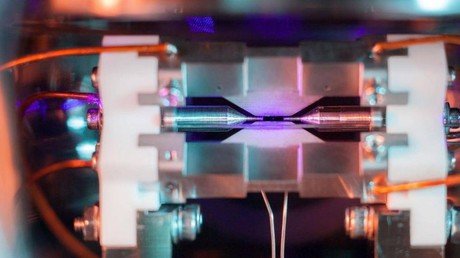Quantum leap: Chinese team set ‘entanglement’ record in potential computer breakthrough

A new ‘quantum entanglement’ record has been set which could see computing speeds ratcheted up. Chinese scientists successfully interwove 18 qubits - the most basic unit of quantum computing - into just six connected photons.
"It's as if you took six bits of the computer, but each of them tripled in the amount of information it could contain and can do it quite quickly and efficiently," quantum physicist Sydney Schreppler from the University of California explained.
In theory, the ability to pack in an unprecedented three qubits per photon will allow quantum computers to perform a wide range of calculations that are simply not possible with conventional computers. However, we won’t know the full potential of the leap for some time as quantum computing is still in the early stages of development.
The team from the University of Science and Technology of China published their multiqubit breakthrough in the journal ‘Physical Review Letters’.
Schreppler told LiveScience it’s likely the Chinese scientists were successful because they packed so many qubits into so few particles. "It's going to be a slow process," she added, as linking the six photons could take several seconds - an eternity by the standard of today’s normal computing processes.
Indeed, the team explained their effort to achieve the breakthrough as taking advantage of the “multiple degrees of freedom” within the photons to set their record.
Think your friends would be interested? Share this story!















